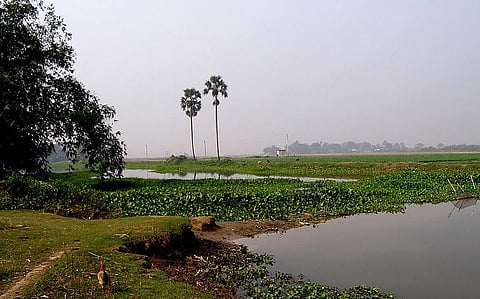Clean Ganga mission to get a boost in Uttar Pradesh with organic farming by river banks
Moving ahead with the clean Ganga mission, the Uttar Pradesh government is now promoting organic farming and afforestation along the river banks. Under the ambit of the Namami Gange Yojna, the authorities are now encouraging organic farming on the river banks in 27 UP districts including Kanpur, Kasganj, Aligarh, Meerut.
Afforestation drive to map out across 27 UP districts
With an afforestation target of 6759 hectares along the banks of Ganga, the administration aims to spread over 503 places in 27 UP districts, in the next six months. These farms will be set up within a radius of 10 kilometres on both the banks in districts where Ganga passes through.
Ganga flows through 27 districts in Uttar Pradesh including Bijnor, Badaun, Amroha, Meerut, Bulandshahr, Aligarh, Farrukhabad, Kannauj, Kanpur city, Kanpur Dehat, Fatehpur, Prayagraj, Mirzapur and Ghazipur, among others. While the larger part of the Gangetic Plain in India falls in UP, it is also credited to have the maximum area of organic farming across the state.
Reviving Ganga!
This initiative is not only aimed at infusing fresh life into the holy river but to cancel the pollution caused by chemical fertilisers and toxic pesticides and ensure its uninterrupted flow as well. In addition to this, this move will also aid in increasing the forest cover in the state, which in turn, will improve the climate of the area.
Moreover, plantations near the river banks will also reduce soil erosion thereby mitigating the risk and severity of floods in the area. A dedicated plantation drive has already been launched in Kasganj and some other areas for the same.
What is organic farming?
An alternative agricultural system, organic farming uses ecologically-based pest controls along with biological fertilisers that are largely derived from animal and plant wastes and nitrogen-fixing cover crops.
Instead of using chemical fertilisers and toxic pesticides, organic products are used to increase the yield and protect the soil. Since this area is flood-prone, the soil of Gangetic Plain changes every year which makes it a good choice for organic farming.
Meanwhile, the authorities are also mulling over an intensive afforestation drive along the tributaries of Ganga as well. As a part of this project, the administration aims to plant saplings of medicinal, rare and traditional plants along the banks of river Ganga and its tributaries.
-with inputs from IANS.
To get all the latest content, download our mobile application. Available for both iOS & Android devices.

